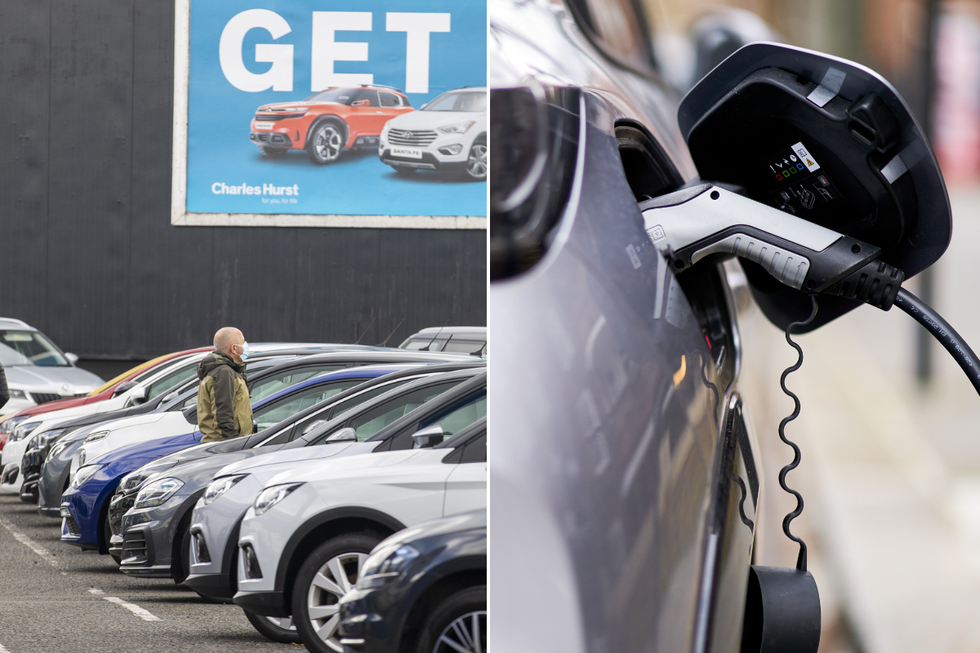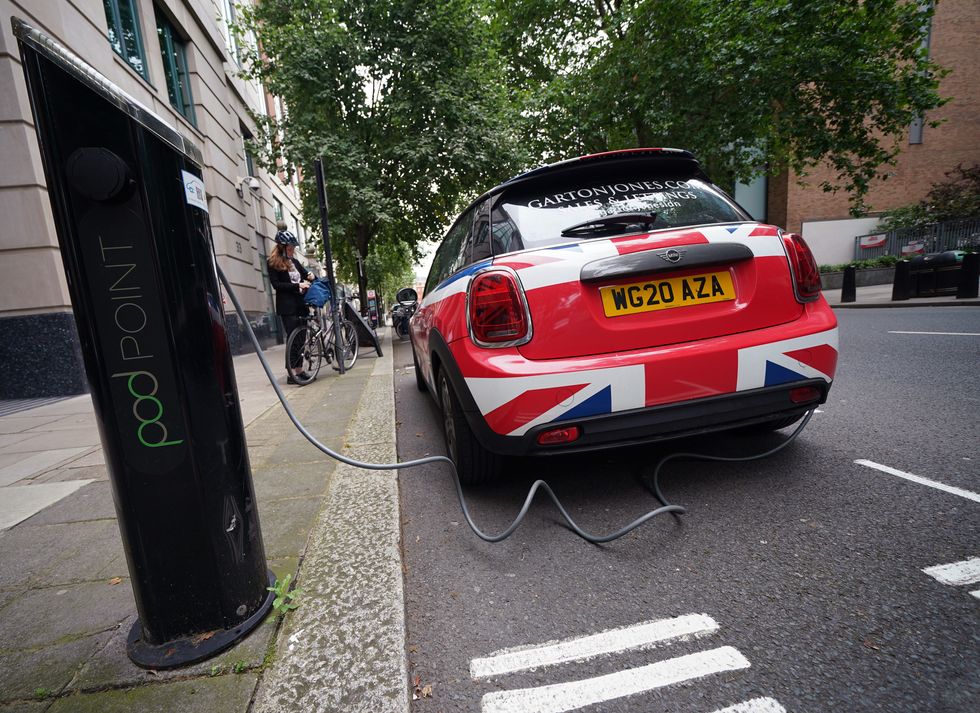Car manufacturers are being forced to offer “unsustainable” discounts totalling £4billion this year to drive growth in electric vehicle sales, as the UK’s new car market faces its third decline in four months.
It comes after reports revealed that November saw overall car deliveries fall by 1.9 per cent, with 153,610 new vehicles joining UK roads, according to the latest figures from the Society of Motor Manufacturers and Traders (SMMT).
While electric vehicle registrations rose for the eleventh consecutive month, reaching 25.1 per cent of the market, this growth has been achieved through unprecedented manufacturer incentives that industry leaders have now warned cannot continue.
The surge in discounting has been growing as the industry races to meet tough Government-mandated EV market share targets, despite weakening consumer demand in the face of broader economic pressures.
Do you have a story you’d like to share? Get in touch by emailing[email protected]
 Used electric car sales have grown dramatically in recent months PA/GETTY
Used electric car sales have grown dramatically in recent months PA/GETTYTraditional petrol and diesel vehicles saw significant declines, with petrol registrations falling 17.7 per cent and diesel dropping 10.1 per cent in November.
Battery electric vehicle sales surged by 58.4 per cent to 38,581 units, making the UK Europe’s second-largest new BEV market by volume after Germany.
Manufacturers now offer more than 130 zero-emission models, a 42 per cent increase from last year, but are having to rely heavily on discounts to achieve sales.
Private buyer demand has been particularly weak, falling 3.3 per cent to 58,496 units, while fleet purchases, which make up nearly 60 per cent of the market, declined by 1.1 per cent.
The industry now expects the UK’s BEV market share to reach only 18.7 per cent in 2024, falling short of the government’s mandated 22 per cent target.
SMMT Chief Executive Mike Hawes said: “Manufacturers are investing at unprecedented levels to bring new zero emission models to market and spending billions on compelling offers. Such incentives are unsustainable – industry cannot deliver the UK’s world-leading ambitions alone.”
He stated that EV registrations need to rise by over 50 per cent next year to meet targets, requiring an additional 90,000 businesses and consumers to make the switch.
“Ambitious regulation, a bold plan for incentives and accelerated infrastructure rollout are essential for success, else UK jobs, investment and decarbonisation will be at further risk,” Hawes warned.
The industry is seeking an urgent review of market regulation and support measures to ensure a successful transition to electric vehicles.
From April 2025, new Vehicle Excise Duty changes will see zero-emission cars pay a reduced first-year rate of £10, while vehicles emitting 1-50g/km of CO2, including hybrids, will face increased rates of £110.
These measures are designed to encourage EV adoption, though the high cost of electric vehicles compared to petrol and diesel models remains a significant barrier to uptake.
The challenging economic environment is also affecting consumer confidence, with inflation at 2.3 per cent continuing to strain household budgets.
LATEST DEVELOPMENTS:

UK car maker incentives helped drive sales of electric cars
PA
James Hosking, Managing Director of AA Cars, added that “shifting consumer priorities and broader economic pressures have stalled recovery, further impacted by the Autumn Budget’s tax increases.
He said: “As 2024 ends, the question remains whether easing economic pressures and EV incentives will revive the new car market — or if budget-friendly used cars will continue to dominate buyer preferences.”